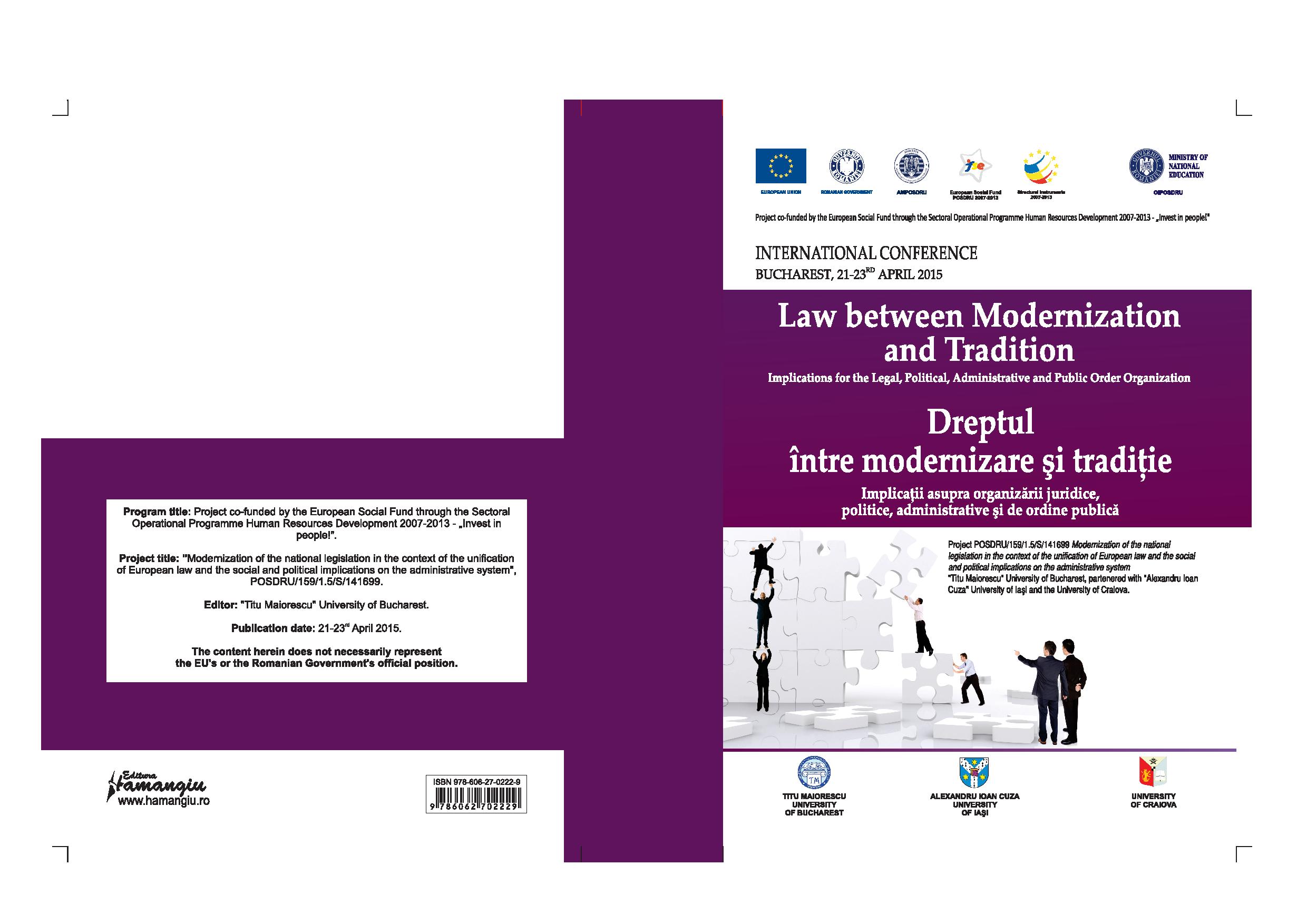AFFIRMATIVE ACTIONS IN THE CONTEXT OF ENSURING GENDER EQUALITY. A CRITICAL ANALYSIS UPON THE LEGAL INTERPRETATION OF AFFIRMATIVE ACTIONS WITHIN THE EUROPEAN UNION FRAMEWORK
AFFIRMATIVE ACTIONS IN THE CONTEXT OF ENSURING GENDER EQUALITY. A CRITICAL ANALYSIS UPON THE LEGAL INTERPRETATION OF AFFIRMATIVE ACTIONS WITHIN THE EUROPEAN UNION FRAMEWORK
Author(s): Beatrice BernaSubject(s): EU-Legislation
Published by: Editura Hamangiu S.R.L.
Keywords: affirmative action; gender; formal equality; susbtantial equality; the law of the European Union;
Summary/Abstract: The present article aims to approach a peculiar legal category and to emphasise the manner in which it was integrated in the European Union Law by pertaining to the developed case-law. We used the generic designation of affirmative action in order to nominate the legal category that makes the object of our study as it is the designation by means of which it was consecrated since its occurence in the Inter-American legal system. Besides the ante-exposed reasoning, we also take into consideration the ideea according to which, the doctrine of international law recognized the integrative character of affirmative actions and the need to dissociate them from positive measures that States must undertake with the scope of achieving equality, -the latter expressing in faciendo obligations. Likewise, we used the notion of affirmative action in order to designate positive measures which, under the European Union primary legislation, are allowed in favor of member States in order to eliminate any inequalities that were hovering over the female segment because of cultural reasons. From the structural point of view, the content of the paper is mainly organized in two distinct sections – both having a deep analytic character – the first one touching the point of organizing and interpreting some general information, necessary for the full understanding of the approached institution and the second one consisting of a critique regarding the manner in which the European Union decided to put into practice affirmative actions. The methodological toolkit that we harnessed may be segregated into three main directions : (1) deductive – as the analytical framework is oriented from general to peculiar aspects; (2) historic – because the analysis of affirmative actions is inadequated in the absence of observing its case-law evolution; (3) hemeneutic – within this method lies the essence of every analytical demarche.
Journal: Conferința Internațională de Drept, Studii Europene și Relații Internaționale
- Issue Year: III/2015
- Issue No: III
- Page Range: 757-765
- Page Count: 9
- Language: English

